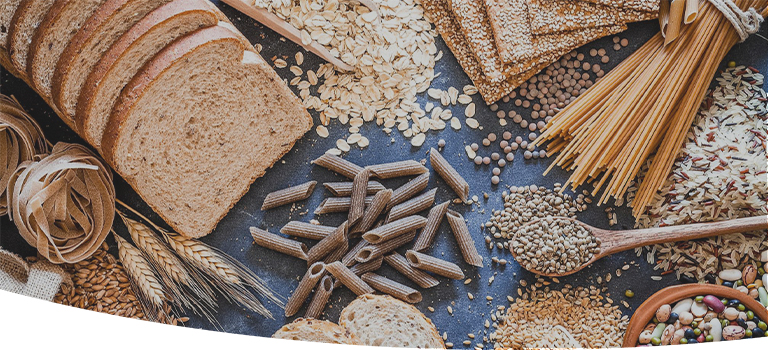Nutrients in Gluten Free foods – how do they measure up?
Read our blog for the results of one of our sponsored dissertations, which identifies levels of nutrients in gluten free bread when compared with breads containing gluten.
Here at Coeliac UK we have provided grants to encourage students in the UK to focus their research projects on coeliac disease and the impact of gluten.
Read on for the results of one of our sponsored dissertations, which identifies levels of nutrients in gluten free bread when compared with breads containing gluten.
Coeliac Disease and lack of data on nutrients
Why are calcium and iron so important for people with coeliac disease?
In undiagnosed or untreated coeliac disease, the lining of the gut is damaged and this reduces the absorption of vitamins and minerals from food, including calcium. A delayed diagnosis of coeliac disease can put our community at risk of osteoporosis due to ongoing reduced absorption of calcium.
Why don’t we know about the iron and calcium content of gluten free foods?
The iron and calcium content of gluten free staple foods like bread and pasta is mostly unknown because:
- Manufacturers don’t have to measure the content of these nutrients in food products.
- National nutrition databases which provide detailed information about lots of common foods don’t include many gluten free foods.
This why the team needed to do the research.
Due to the importance of these nutrients and the lack of data available, the research team analysed the iron and calcium content of 73 gluten free foods including different types of bread, pasta and pizza bases from the UK.
What did the research discover?
The research team identified that white gluten free breads are lower in calcium and protein, higher in fibre and contain a similar amount of iron compared with gluten containing bread.
Why it’s important for our community:
Knowing more about the levels of calcium and iron in your staple food products can help you make sure you’re getting enough of these vital nutrients.
Here are our top tips for making sure you’re getting enough:
Iron
Iron recommendations for people with coeliac disease are the same as the general population, but iron deficiency is common in people with coeliac disease at diagnosis.
Reassuringly, the study found the iron content of white gluten free bread loaves was similar to gluten containing products. However, lower iron levels were found in other gluten free breads such as wraps and rolls.
Good sources of iron for a gluten free diet
- Red meat
- Eggs
- Leafy green vegetables
- Pulses (peas, beans and lentils)
- Dried fruit
- Nuts and seeds
For further information:
Download our iron and iron deficiency fact sheet
OR
Calcium
People with coeliac disease are recommended to have 1,000mg calcium each day, compared to 700mg a day for the general population.
The researchers found that the calcium content of gluten free white bread varied a lot, but on average it was lower in calcium than gluten containing bread. Similarly, gluten free white rolls were also found to have lower calcium content than gluten containing white rolls.
Good sources of calcium for a gluten free diet
- Dairy foods like milk, cheese and yoghurt
- Dairy-free alternatives - as long as they have added calcium!
- Tinned sardines
- Kale
- Broccoli
- Baked beans
- Dried apricots
For more information:
Download our calcium fact sheet here
OR
Next steps
In this study, only 27% of gluten free white loaves and rolls had added calcium and only 9% had added iron. It is a legal requirement for gluten containing non-wholemeal wheat flour to have certain nutrients added, including calcium and iron. However, this requirement does not apply to gluten free flour. This is something we want to change. We will be responding to a national consultation on the regulations for adding nutrients to flour on behalf of the gluten free community. We’ll also be sharing the results of this research with gluten free food manufacturers to share our expertise and get the conversation going on this topic.
Looking for more support with your diet?
We’ve got loads of resources to help you meet your nutritional needs and get the most from your gluten free diet. Check out our fact sheets below, or why not join one of our specialist diet and health workshops? You’ll get tools to help you find suitable foods and the chance to ask our experts your questions.
